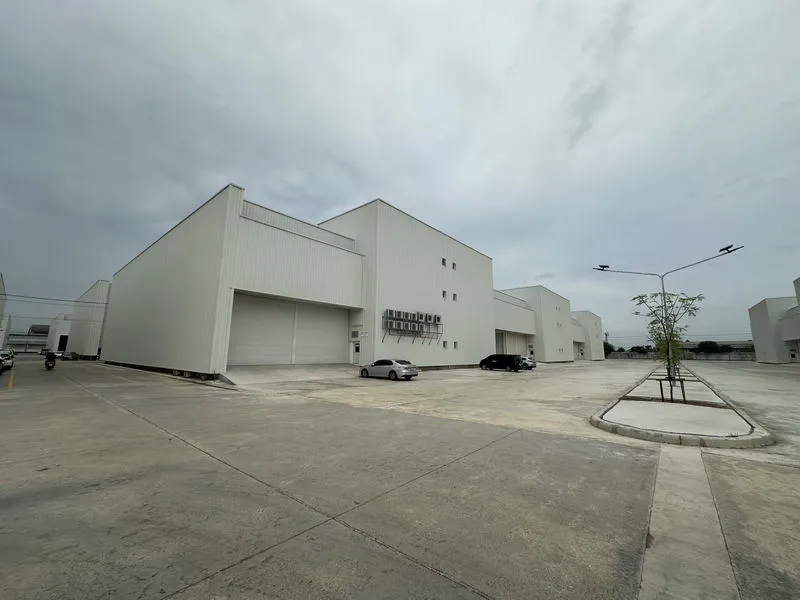Factory License in Thailand
Introduction
This guide explains whether a factory license is required when operating a business and how to get factory license in Thailand. If your business involves manufacturing, production, or cold storage, you may need a factory license.
The definition of a factory is detailed in The Thailand Factory Act (No. 2), B.E. 2562 (2019) as follows:
"Factory" means buildings, premises, or vehicles using machines with a total power of 50 horsepower or more, or employing 50 workers or more—with or without machinery—to engage in factory operations, as prescribed in the Ministerial Regulations.
"Establishing a factory" means the installation of machinery for factory operations in buildings, premises, or vehicles, or employing workers for such operations when no machinery is used.
An unofficial English translation of the Act is available here:
Factory License Categories
Category 1 ("Ror Ngor 2")
License Not Required
For factories using machinery with total power under 50 horsepower or employing fewer than 50 workers.
Category 2 ("Ror Ngor 3")
Advance Notification Required
Factories must notify local officials before starting operations. Business can commence once the receipt of notification is issued.
Applies to factories using 50–75 horsepower machinery or employing 50–75 workers.
Category 3 ("Ror Ngor 4")
License Required
A license must be obtained from the Department of Industrial Works (DIW), the Ministry of Industry, or the Industrial Estate Authority of Thailand (IEAT) before operations begin.
Applies to factories using more than 75 horsepower or employing more than 75 workers.
A preliminary construction permit may be issued in advance at the Ministry's discretion.
When is a Factory License Required?
Depending on the category, starting, expanding, or renewing a factory in Thailand requires different levels of approval from the Department of Industrial Works (DIW) and other authorities.
The following outlines the general procedures for submission, documentation, inspection, and compliance.
Preliminary Requirements
1. Business Registration
Register your company with the Department of Business Development (DBD) under the Ministry of Commerce.
2. Determine License Type
Identify the correct license subcategory based on your manufacturing process:
🔗 DIW Factory Type Search
🔗 Factory Type Law List
Zoning Compliance
Confirm that your business location is within a zoning area that permits your type of manufacturing.
General zoning guidelines: 🔗 Hero Realtor Zoning Guide
Zoning Maps:
Feasibility Study
A feasibility or environmental assessment may be required depending on machinery scale, emissions, or pollution levels.
Public Hearing
Factories under Category 3 must conduct a public hearing before submitting the application. This ensures local community concerns related to environmental and health impacts are addressed.
Environmental and Health Impact Assessments
Factories with complex or hazardous production (e.g., food, chemicals, engineering) may require:
Environmental Impact Assessment (EIA)
Health Impact Assessment (HIA)
Other certifications: GMP, FDA, GACP
Industrial Estate Establishment
Many foreign companies choose to locate factories in Industrial Parks or IEAT-managed Estates—typically in designated “purple zones” for industrial use:
🔗 Industrial Estate Authority of Thailand (IEAT)
Application Submission
Once all preliminary documents are in order, submit Form Ror Ngor 3 and supporting documents to the DIW or provincial authorities.
Typical Required Documents:
Company registration certificate (DBD)
List of shareholders (dated within 6 months)
VAT certificate
Land ownership or lease agreement
Factory building registration (Tabien Baan), building permit, layout plans
Factory and production line design with machinery layout
Approved EIA or HIA (if applicable)
Machinery list with power output and specifications
Safety documents (workplace safety plan, fire safety, hazard mitigation)
Application Evaluation and Inspection
After submission:
Authorities will inspect the premises for zoning, safety, environmental compliance, and completeness.
Missing or incomplete documentation may lead to rejection, though re-application is possible once corrected.
License Issuance
The evaluation and processing typically take around 2 months.
Once compliance is confirmed and fees are paid, the factory license can be collected at the local DIW office.
License Renewal
Factory licenses are valid for 5 years from issuance.
Renewal should be filed before expiration to avoid operational disruption.
Late renewals may result in penalties or fines.
Documents Required for Renewal
Most documents required for renewal mirror the original application. Additional documents may be needed if factory operations or regulatory compliance have changed.
Summary
This guide covers everything you need to know about obtaining a factory license in Thailand.
Hero Realtor specializes in finding the right properties for businesses operating or planning to establish factories. We assist clients with location selection, particularly in popular industrial areas like Samut Prakan and Pathum Thani.
⚠️ Note: Hero Realtor does not offer factory licensing services. However, we can recommend trusted, licensed specialists to help you obtain a factory license hassle-free.






